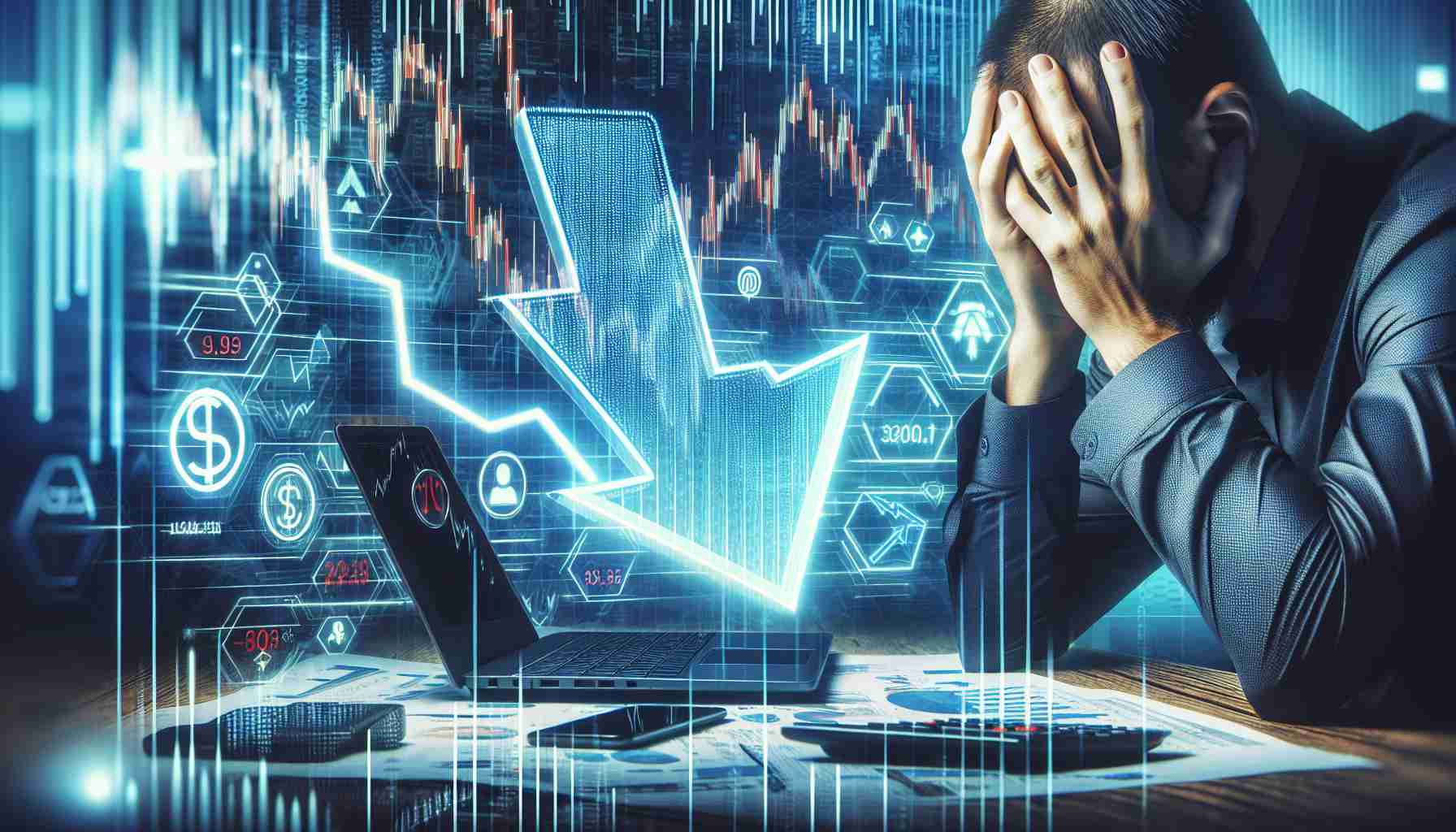As trading wrapped up on Thursday, the stock market took a downturn, leaving investors concerned. The Nasdaq Composite faced the steepest decline, plunging by 172 points, equivalent to a 0.89% drop. With the end of trading, many are now shifting their sights to next week’s political events.
A historic moment is approaching as Donald Trump prepares to be inaugurated as the 47th President of the United States. This occasion will witness the attendance of notable tech leaders, including Amazon’s Jeff Bezos, Tesla’s Elon Musk, and Meta’s Mark Zuckerberg, sparking discussions on their influence in the new administration.
In the wake of fluctuating markets, Stagwell’s CEO, Mark Penn, pointed out the strategic importance of their presence at such a pivotal event. Meanwhile, insights from Mark Mahaney, Evercore ISI’s expert in internet research, highlight critical risks looming over major players like Alphabet, Amazon, and Meta.
Looking ahead, market analysts Julie Hyman and Josh Lipton are focusing on upcoming trading activities, with special attention on important housing data that could impact market sentiment. For those eager to stay informed on market dynamics, there’s ample expert commentary available regarding the latest developments in the financial landscape.
Stay tuned for updates as investors navigate the complexities of the stock market in the wake of significant political shifts.
Socioeconomic Shifts in a New Political Era
The recent downturn in the stock market, particularly the decline of the Nasdaq Composite, highlights a broader societal anxiety rooted in political shifts and their economic ramifications. As Donald Trump prepares for his inauguration, this transition carries implications not just for investors but for the entire cultural narrative surrounding technology and governance. The presence of titans like Jeff Bezos and Elon Musk at the event signals a potential restructuring of the relationship between Silicon Valley and the government, raising critical questions about corporate influence in policy-making.
The global economy stands at a crossroads, with fluctuations in U.S. markets reverberating worldwide. Investors look toward housing data and other financial indicators, which could either bolster or further unravel confidence in the market. As such, the interconnectedness of economies around the globe will likely hinge on the outcomes of policy decisions made in Washington, impacting everything from trade agreements to regulatory frameworks championed by powerful tech firms.
Furthermore, there are tangible environmental concerns at play as these corporate leaders advocate for policies affecting climate change and sustainability. Future trends suggest an increase in collaboration between government and industry leaders, potentially accelerating innovation while straining regulatory bounds. As we navigate these uncharted waters, the long-term significance of this political landscape may redefine not just corporate governance but also the prevailing cultural values that drive consumer behavior and societal priorities. In essence, investors and citizens alike must brace for a future where economic and political destinies are increasingly intertwined.
Market Shifts and Political Influence: What Investors Need to Know
The stock market experienced a downturn on Thursday, with the Nasdaq Composite leading the decline by dropping 172 points, which is about a 0.89% decrease. This downturn has left many investors concerned about market stability. As trading comes to a close, the prospect of next week’s political events is capturing the attention of market analysts and investors alike.
One of the most significant upcoming events is the inauguration of Donald Trump as the 47th President of the United States. The occasion is set to attract several influential tech leaders, including Jeff Bezos of Amazon, Elon Musk of Tesla, and Mark Zuckerberg of Meta. Their attendance raises vital questions regarding their potential influence on the new administration and the broader tech industry.
Insights from Industry Experts
Mark Penn, CEO of Stagwell, emphasized the strategic importance of the presence of these tech leaders at this pivotal moment. Meanwhile, Mark Mahaney, an expert at Evercore ISI, has highlighted potential risks facing major tech companies such as Alphabet, Amazon, and Meta in light of changing policies and market conditions.
Market Analysis
Analysts Julie Hyman and Josh Lipton are keeping a close watch on upcoming trading activities, particularly housing data, as it could heavily influence market sentiment in the near term. Understanding how such data interacts with broader economic indicators is crucial for investors trying to gauge market direction amidst political changes.
How to Stay Informed
For those looking to stay updated on the evolving financial landscape, it’s important to incorporate expert analyses and commentary regarding market movements. Utilizing financial news platforms and market analysis tools can aid investors in making informed decisions.
Pros and Cons of Political Events on the Stock Market
Pros:
– Increased Market Activity: Political events can lead to heightened trading activity, providing opportunities for investors.
– Potential for Reform: New policies may lead to beneficial reforms for certain sectors, particularly technology.
Cons:
– Market Volatility: Political uncertainty can cause significant fluctuations in stock prices, leading to potential losses.
– Regulatory Risks: Changes in administration policies may introduce regulatory challenges for companies.
Conclusion
As the stock market continues to navigate the ups and downs influenced by political events, staying informed becomes vital. With investors facing the dual challenge of market turbulence and significant political shifts, careful analysis and strategic planning are essential for success in today’s economic environment. For further insights and updates, be sure to visit reliable financial news sources and analysis platforms.
For more information, you can check out Investing.com for the latest market trends and analysis.








